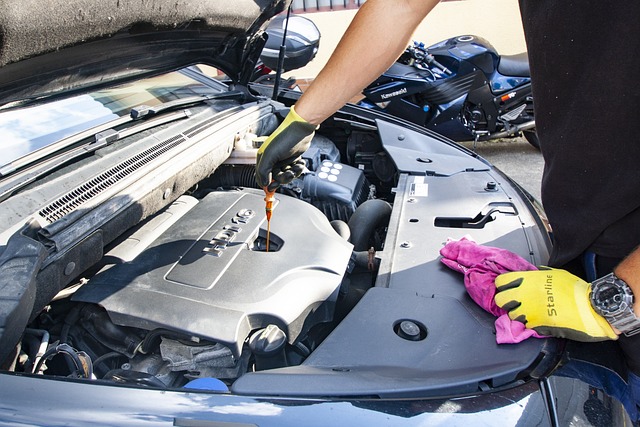To navigate state-issued license plate requirements, individuals must familiarize themselves with their respective state's Department of Motor Vehicles (DMV) regulations, which cover physical characteristics, fees, and application processes for new residents and vehicle owners. Non-compliance can result in fines and legal issues. The process involves submitting an application along with proof of vehicle ownership and a driver's license, and some states offer personalized plates with additional costs. States have streamlined this through online services for applications, renewals, status checks, and title searches to verify vehicle ownership. These digital platforms also ensure safety and emissions compliance before registration. For new residents, temporary tags are provided initially, followed by permanent plates. Transferring vehicle ownership requires completing the vehicle's title and registration forms, along with a valid ID, and can be facilitated through online services for a more efficient and convenient process. Online vehicle history report services allow buyers to verify legal ownership status and uncover potential issues like liens or accidents. These reports are crucial for informed decisions and ensuring road safety. The DMV oversees these processes to maintain an accurate database of vehicles, vital for tracking recalls and alerts, and to uphold safety standards in line with Transportation Department guidelines. Vehicle history report services provide reliable data that enhances transparency and safety during the ownership transfer and registration phase, aiding both sellers and buyers in secure transactions.
Navigating the complexities of state-issued license plates and transferring vehicle ownership can seem daunting, yet it’s a common administrative task that state motor vehicle services have streamlined with online registration services and title searches. These advancements are not only designed to save time but also to enhance road safety compliance. The Transportation Department’s recent emphasis on these improvements underscores the commitment to a secure and transparent driving environment, ensuring that every driver can confidently manage their vehicle’s documentation with ease. This article will guide you through understanding state-issued license plate requirements, the steps to obtain your plates, transferring ownership smoothly, and leveraging online tools for registration and title searches. Additionally, we’ll explore how vehicle history report services play a crucial role in maintaining the integrity of our roads.
- Understanding State-Issued License Plate Requirements
- Steps to Obtain Your State's License Plates
- The Process of Transferring Vehicle Ownership
- Utilizing Online Vehicle Registration Services
- Conducting Title Searches for Vehicle History
- Ensuring Road Safety Compliance with Motor Vehicle Departments
- Leveraging Vehicle History Report Services for Security and Transparency
Understanding State-Issued License Plate Requirements

Navigating state-issued license plate requirements can be a straightforward process with the right guidance. Each state has its own set of regulations concerning the issuance and renewal of license plates, which are often accessible through the state’s Department of Motor Vehicles (DMV) or equivalent agency. These regulations cover everything from the physical characteristics of the plate to the fees involved. For new residents, understanding these requirements is crucial as it is a legal necessity to have properly issued license plates within a specified timeframe after moving. The process of obtaining a license plate typically involves submitting an application along with the necessary documentation, such as proof of vehicle ownership and a valid driver’s license. Additionally, some states may have specific design elements or personalization options available, which come with their own set of guidelines and additional costs.
The importance of adhering to these requirements cannot be overstated, as having invalid or expired license plates can result in fines and legal complications. To ensure compliance, many states now offer online services where individuals can apply for new plates, renew existing ones, or check the status of their registration. These digital tools are designed to streamline the process, save time, and reduce the need for in-person visits to a DMV office. Moreover, title searches can be conducted through these platforms to confirm the legal ownership of a vehicle before transferring it, which is an essential step in the vehicle ownership transfer process. The state’s transportation department plays a key role in maintaining these systems and ensuring that all drivers abide by the current regulations, contributing to road safety compliance and a more secure driving environment for everyone.
Steps to Obtain Your State's License Plates

When seeking to obtain your state-issued license plates, the process typically involves several straightforward steps designed to ensure your vehicle is legally registered and recognized on public roads. Firstly, you will need to provide proof of ownership and identity for both the vehicle and the individual registering it. This usually includes a bill of sale or title, along with a valid government-issued ID. Next, you must complete any necessary application forms provided by your state’s Department of Motor Vehicles (DMV) or its equivalent. These forms can often be filled out online for convenience. Once the application is submitted, you may be required to have a vehicle inspection to ensure it meets safety and emissions standards set forth by your state. After passing this inspection, you will need to pay the required fees for registration and license plates. These fees vary depending on the state and the type of vehicle being registered. Upon successful completion of these steps and payment confirmation, your state will issue temporary tags, which you can then use until your permanent license plates arrive by mail or are ready for pickup at a local DMV office. Remember to follow your state’s specific guidelines as some may require additional documentation or in-person visits. With the advent of online services, many states now allow applicants to renew or replace their license plates and vehicle registrations entirely through their official websites, offering a streamlined and efficient process for vehicle owners.
The Process of Transferring Vehicle Ownership

Transferring vehicle ownership from one individual to another involves several administrative steps designed to ensure the legal and proper transition of a vehicle’s title. The process typically begins with the seller completing all necessary sections of the vehicle’s title, indicating their name, address, and signature, as well as the buyer’s information. This step is crucial to acknowledge the transfer of ownership. Both parties must then sign the back of the current registration to confirm its deactivation under the seller’s name and activation under the buyer’s name.
Once the title and registration have been properly signed, both documents should be submitted to the relevant state motor vehicle agency along with any required fee payments. These fees facilitate the processing of the transfer and issuance of a new registration in the buyer’s name. Additionally, proof of insurance, an emissions test (if applicable), and odometer disclosures (for used cars) may also be necessary. The state will then issue a new registration certificate to the buyer, marking the completion of the ownership transfer process. State motor vehicle services have streamlined this process with online platforms, allowing for expedited document submissions and electronic title transfers, making the transition smoother and more accessible for all involved.
Utilizing Online Vehicle Registration Services

The advent of online vehicle registration services has significantly streamlined the process of obtaining state-issued license plates and transferring vehicle ownership. These digital platforms offer a user-friendly experience, allowing individuals to complete necessary paperwork and make payments from the comfort of their own homes. This transition to the virtual realm not only saves time but also reduces the need for physical visits to local department of motor vehicles (DMV) offices, thereby mitigating potential exposure to illnesses and alleviating traffic congestion outside these facilities. To utilize these services, one must simply visit their state’s official online portal and follow the provided instructions, which typically involve submitting personal details, vehicle information, and appropriate documentation for verification. Once all requirements are met, the license plates can be mailed to the registrant or, in some cases, immediately available for digital display on the vehicle via a temporary digital tag until the physical plates arrive. This modern approach to vehicle registration is a testament to the state’s commitment to enhancing accessibility and efficiency in its services, contributing to a more efficient and secure driving environment as mandated by recent Transportation Department guidelines.
Conducting Title Searches for Vehicle History

When purchasing a used vehicle, conducting a title search is a prudent step to ensure the car’s history is transparent and free from encumbrances. This process involves checking the vehicle’s title against state records to confirm its legal ownership status, as well as uncover any liens, past damage, or previous accidents that might affect its value and safety. State motor vehicle departments provide this service through their online portals, allowing potential buyers to quickly access a comprehensive vehicle history report. These reports are crucial for making informed decisions, as they contain detailed information about the car’s ownership timeline, accident records, mileage consistency, and service history. By leveraging these tools, buyers can proceed with confidence, knowing that they have a clear understanding of what they are investing in. Similarly, sellers can use title searches to demonstrate clear title before transferring ownership, ensuring a smooth transaction for both parties involved. The availability of such services online has made the process more accessible and efficient, allowing individuals to conduct these searches from the comfort of their homes and at their own pace.
Ensuring Road Safety Compliance with Motor Vehicle Departments

When navigating the process of registering a vehicle or transferring ownership, individuals often encounter a range of procedures and requirements set forth by Motor Vehicle Departments (MVDs) across different states. These departments play a critical role in ensuring road safety compliance by mandating up-to-date registration and title documentation for every vehicle on public roads. The registration process not only facilitates the collection of necessary taxes but also helps maintain a database of all registered vehicles, which is essential for tracking recalls and safety alerts.
To streamline these tasks, many states have introduced user-friendly online services. These platforms allow drivers to register their vehicles, renew their licenses, and access title searches with ease, often from the comfort of their own home. This digital transformation not only saves time but also reduces the risk of human error in paper-based processes. Additionally, these online systems are integrated with other databases to ensure that all vehicles meet safety standards as per the federal guidelines issued by the Transportation Department. These guidelines aim to standardize vehicle registration across states, thus creating a more uniform and secure driving environment for everyone on the road.
Leveraging Vehicle History Report Services for Security and Transparency

Navigating the process of vehicle ownership transfer and registration can be streamlined significantly with the aid of vehicle history report services. These services provide a comprehensive overview of a vehicle’s past, including previous owners, accident history, repair records, and service documentation. Such detailed reports not only enhance transparency for potential buyers but also contribute to road safety by ensuring that vehicles in question have not been involved in significant damage incidents that could compromise their integrity. By leveraging these reports, both sellers and buyers can make informed decisions, fostering a marketplace where transactions are conducted with greater confidence and security. Moreover, these services often partner with state motor vehicle departments, integrating their databases to offer real-time information. This synergy ensures that the data provided is up-to-date and accurate, further underpinning the reliability of the information for all parties involved in the transfer and registration processes.
navigating the process of obtaining state-issued license plates or transferring vehicle ownership has become more streamlined thanks to the digital tools provided by state motor vehicle services. These advancements, including online registration services and title searches, are pivotal in enhancing accessibility and efficiency. The Transportation Department’s focus on road safety compliance and the utilization of vehicle history report services further underscore the commitment to a safer and more transparent driving environment. In conclusion, residents can confidently manage their vehicle documentation needs, knowing that support is readily available to facilitate a smoother experience.



